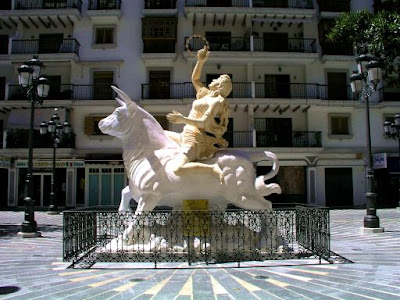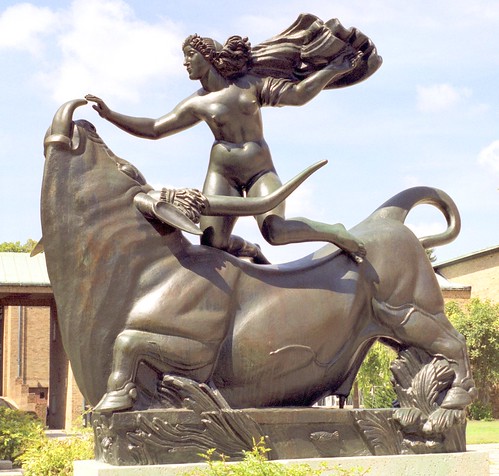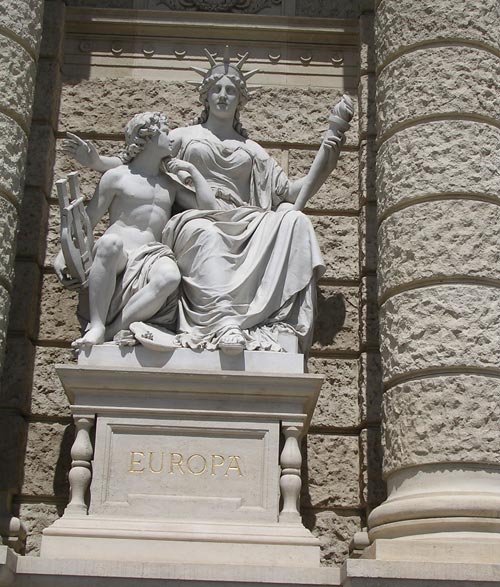Europa league - Here we come
We might just run into our old mate..Mr Harry Kewell
-

Aussie Style - LFC Super Member
- Posts: 863
- Joined: Sat Mar 01, 2008 3:30 am
- Location: Melbourne, Australia
Its an embarrassment playing in the Europa league having been tipped by many for the league title less than 4 months ago... The other clubs in the competition are cr@p and winning it doesnt prove jack sht ! All the sides besides maybe Valencia and Roma would struggle to even get out of CL group stages... most wouldnt even dream of making the CL anytime soon... FFS some sides can make it to the Europa league by simply picking up the least yellow cards in their league... not a competition worth winning imo... only thing attractive about it is the money we'd get if we won it which as far as i know isnt that much anyways... Atleast with the FA cup you know that decent sides have a chance of winning it, and that theyd be fielding strong teams when they get to the latter stages.... I dont think we can afford the lucury of concentrating on 3 different competitions given the size and quality of our squad...
-

aCe' - >> LFC Elite Member <<
- Posts: 6218
- Joined: Sat Jul 22, 2006 8:47 pm
- Location: ...
well, every trophy is sweet. Still remember the night when we down Mancs 2-0 in the League cup with Owen finishing them late in the game.
And to me, the Uefa cup (Europa league) is more prestige than the league cup.
so why not? lets go all out to win this, and the prospect of seeing Torres lifting the first cup with the club is tempting....
And to me, the Uefa cup (Europa league) is more prestige than the league cup.
so why not? lets go all out to win this, and the prospect of seeing Torres lifting the first cup with the club is tempting....

-
[1].gif)
Octsky - LFC Super Member
- Posts: 1716
- Joined: Sun Oct 05, 2008 5:23 pm
- Location: mauritius
Get Excited!!! Haha! Canny quite believe we're gonna be talking about Europa League matches! Hard to get excited isn't it!?
Still, it could be good!
I'm thinking Everton in the semi's (that would be something wouldn't it?) And then Celtic in the final. I'm not too sure of the other teams left in the competition but it would be nice if we can get a few ties to make the competition worthwhile. Kinda like the League Cup in 2003, i know it was only the League Cup but to beat the mancs in the final made it a very special win, far more so than if we'd beaten Birmingham as was the case in 2001.
Still, it could be good!
I'm thinking Everton in the semi's (that would be something wouldn't it?) And then Celtic in the final. I'm not too sure of the other teams left in the competition but it would be nice if we can get a few ties to make the competition worthwhile. Kinda like the League Cup in 2003, i know it was only the League Cup but to beat the mancs in the final made it a very special win, far more so than if we'd beaten Birmingham as was the case in 2001.
-

Scottbot - >> LFC Elite Member <<
- Posts: 4919
- Joined: Thu Jan 22, 2004 8:02 pm
- Location: Winchester, Hampshire
Think there is already one of these up and running mate I might be wrong. I'm looking forward to it I guess. We may as well give it a go.
-

tubby - >> LFC Elite Member <<
- Posts: 22442
- Joined: Mon Jun 27, 2005 2:05 pm
I'd want Valencia in the final.
- SupitsJonF
- Posts: 2798
- Joined: Wed Aug 22, 2007 5:35 am
- Location: USA: NJ
bavlondon wrote:Think there is already one of these up and running mate I might be wrong. I'm looking forward to it I guess. We may as well give it a go.
Oops! I didn't realise. I saw Celtic were winning, i didn't realise they'd blown it.
-

Scottbot - >> LFC Elite Member <<
- Posts: 4919
- Joined: Thu Jan 22, 2004 8:02 pm
- Location: Winchester, Hampshire



Europa (mythology)
From Wikipedia, the free encyclopedia
Jump to: navigation, search
"Rape of Europa" redirects here. For the book and documentary regarding Nazi plunder of art during World War II, see The Rape of Europa.
Europa
Terracotta figurine from Athens, ca. 460 BC–480 BC
Terracotta figurine from Athens, ca. 460 BC–480 BC
Parents Agenor and Telephassa
Siblings Cadmus, Cilix, Phoenix
Children Minos, Rhadamanthus, Sarpedon
Mount Zeus in disguise as a white bull
This box: view • talk
Europa (Greek Εὐρώπη) was a Phoenician woman of high lineage in Greek mythology, from whom the name of the continent Europe has ultimately been taken. The story of her abduction by Zeus in the form of a white bull was a Cretan story, as Kerényi points out; "most of the love-stories concerning Zeus originated from more ancient tales describing his marriages with goddesses. This can especially be said of the story of Europa."[1] The name Europa occurs in the list of daughters of primordial Oceanus and Tethys; the daughter of the earth-giant Tityas and mother of Euphemus by Poseidon, was also named Europa.
Europa's earliest literary reference is in the Iliad, which is commonly dated to the late 9th or to the 8th century BC[2]. Another early reference to her is in a fragment of the Hesiodic Catalogue of Women, discovered at Oxyrhyncus[3]. The earliest vase-painting securely identifiable as Europa, dates from mid-7th century BC.[4]
Contents
[hide]
* 1 Etymology
* 2 Family
* 3 Abduction
* 4 In classical literature
* 5 Adoptions of the name
o 5.1 The continent
o 5.2 The moon of Jupiter
* 6 Notes
* 7 References
o 7.1 Primary sources
o 7.2 Secondary sources
* 8 External links
[edit] Etymology
Enlèvement d'Europe by Nöel-Nicolas Coypel, c. 1726
The etymology of her Greek name (ευρυ- "wide" or "broad" + οπ– "eye(s)" or "face")[5][6] suggests that Europa as a goddess represented the lunar cow, at least on some symbolic level. Metaphorically, at a later date her name could be construed as the intelligent or open-minded, analogous to glaukopis (γλαυκώπις) attributed to Athena. However, Ernest Klein suggests a possible Semitic origin in Akkadian erebu "to go down, set" (in reference to the sun) which would parallel occident.[7]
In the territory of Phoenician Sidon, Lucian of Samosata (second century CE) was informed that the temple of Astarte, whom Lucian equated with the moon goddess, was sacred to Europa:
"There is likewise in Phœnicia a temple of great size owned by the Sidonians. They call it the temple of Astarte. I hold this Astarte to be no other than the moon-goddess. But according to the story of one of the priests this temple is sacred to Europa, the sister of Cadmus. She was the daughter of Agenor, and on her disappearance from Earth the Phœnicians honoured her with a temple and told a sacred legend about her; how that Zeus was enamoured of her for her beauty, and changing his form into that of a bull carried her off into Crete. This legend I heard from other Phœnicians as well; and the coinage current among the Sidonians bears upon it the effigy of Europa sitting upon a bull, none other than Zeus. Thus they do not agree that the temple in question is sacred to Europa."[8]
The paradox, as it seemed to Lucian, would be solved if Europa is Astarte in her guise as the full, "broad-faced" moon.
[edit] Family
The birthplace of Europa, Tyre, Lebanon
Sources differ in details regarding Europa's family, but agree that she is Phoenician, and from a lineage that descended from Io, the mythical nymph beloved of Zeus, who was transformed into a heifer. She is said to be the daughter of Agenor, the Phoenician King of Tyre, and Queen Telephassa ("far-shining") or of Argiope ("white-faced").[9] Other sources, such as the Iliad, claim that she is the daughter of Agenor's son, the "sun-red" Phoenix. It is generally agreed that she had two brothers, Cadmus, who brought the alphabet to mainland Greece, and Cilix who gave his name to Cilicia in Asia Minor, with Apollodorus including Phoenix as a third. After arriving in Crete, Europa had three sons: Minos, Rhadamanthus, and Sarpedon, the three of whom became the three judges of the Underworld when they died.[10] She married Asterion also rendered Asterius. According to mythology, her children were fathered by Zeus.
The Abduction of Europa by Rembrandt, 1632
There were two competing myths[11] relating how Europa came into the Hellenic world, but they agreed that she came to Crete, where the sacred bull was paramount. In the more familiar telling she was seduced by the god Zeus in the form of a bull, who breathed from his mouth a saffron crocus[12] and carried her away to Crete on his back— to be welcomed by Asterion,[13] but according to a more literal, euhemerist version in Herodotus, she was kidnapped by Minoans, who likewise were said to have taken her to Crete. The mythical Europa cannot be separated from the mythology of the sacred bull, which had been worshipped in the Levant.
Europa does not seem to have been venerated directly in cult anywhere in Classical Greece,[14] but at Lebadaea in Boeotia, Pausanias noted in the second century CE that Europa was the epithet of Demeter— "Demeter whom they surname Europa and say was the nurse of Trophonios"— among the Olympians who were addressed by seekers at the cave sanctuary of Trophonios of Orchomenus, to whom a chthonic cult and oracle were dedicated: "the grove of Trophonios by the river Herkyna. ...there is also a sanctuary of Demeter Europa... the nurse of Trophonios."[15]
[edit] Abduction
The Abduction of Europa by Titian (1562)
The mythographers tell that Zeus was enamored of Europa and decided to seduce or ravish her, the two being near-equivalent in Greek myth. He transformed himself into a tame white bull and mixed in with her father's herds. While Europa and her female attendants were gathering flowers, she saw the bull, caressed his flanks, and eventually got onto his back. Zeus took that opportunity and ran to the sea and swam, with her on his back, to the island of Crete. He then revealed his true identity, and Europa became the first queen of Crete. Zeus gave her a necklace made by Hephaestus[16] and three additional gifts: Talos, Laelaps and a javelin that never missed. Zeus later re-created the shape of the white bull in the stars, which is now known as the constellation Taurus. Some readers interpret as manifestations of this same bull the Cretan beast that was encountered by Hercules, the Marathonian Bull slain by Theseus (and that fathered the Minotaur). Roman mythology adopted the tale of the Raptus, also known as "The Abduction of Europa" and "The Seduction of Europa", substituting the god Jupiter for Zeus.
File:Abduction of Europe, European Parliament, Strasbourg.jpg
Statue in front of the seat of the European Parliament in Strasbourg
According to Herodotus' rationalizing approach, Europa was kidnapped by Minoans who were seeking to avenge the kidnapping of Io, a princess from Argos. His variant story may have been an attempt to rationalize the earlier myth; or the present myth may be a garbled version of facts — the abduction of a Phoenician aristocrat — later enunciated without gloss by Herodotus.
The story may also have evolved from the remnants of oral history about the settlement of the island. Cretans were of course great sailors, as all islanders must be, and must have come from some mainland area by raft or ship. They must also have brought their cattle and other livestock with them, since bulls figured prominently in their sports, arts and religious imagery. In the mythological transformation of history, however, roles are reversed, and the bull provides the transportation for the founding mother of the Minoan people.
[edit] In classical literature
Europa in a fresco at Pompeii, contemporary with Ovid
Europa provided the substance of a brief Hellenistic epic written in the mid-second century BCE by Moschos, a bucolic poet and friend of the Alexandrian grammarian Aristarchus of Samothrace, born at Syracuse.[17]
In Metamorphoses, the poet Ovid wrote the following depiction of Jupiter's seduction:
And gradually she lost her fear, and he
Offered his breast for her virgin caresses,
His horns for her to wind with chains of flowers
Until the princess dared to mount his back
Her pet bull's back, unwitting whom she rode.
Then — slowly, slowly down the broad, dry beach —
First in the shallow waves the great god set
His spurious hooves, then sauntered further out
'til in the open sea he bore his prize
Fear filled her heart as, gazing back, she saw
The fast receding sands. Her right hand grasped
A horn, the other lent upon his back
Her fluttering tunic floated in the breeze.
His picturesque details belong to anecdote and fable: in all the depictions, whether she straddles the bull, as in archaic vase-paintings or the ruined metope fragment from Sikyon, or sits gracefully sidesaddle as in a mosaic from North Africa, there is no trace of fear. Often Europa steadies herself by touching one of the bull's horns, acquiescing.
Her tale is also mentioned in Nathaniel Hawthorne's "Tanglewood Tales for boys and girls". Though his story titled "Dragon's teeth" is largely about Cadmus, it begins with an elaborate albeit toned down version of Europa's abduction by the beautiful bull.
[edit] Adoptions of the name
[edit] The continent
Further information: European symbols#Europa
Satellite image of Europe
The name of Europe as a geographical term came in use by Ancient Greek geographers such as Strabo.[18] It is derived from the Greek word Eurōpē (Ευρώπη) in all Romance languages, Germanic languages, Slavic languages, Baltic Languages, in Finno-Ugric languages (Hungarian Európa, Finnish Eurooppa, Estonian Euroopa), as well as in Latin.
Jürgen Fischer, in Oriens-Occidens-Europa[19] summarized how the name came into use, supplanting the oriens - occidens dichotomy of the later Roman Empire, which was expressive of a divided empire, Latin in the West, Greek in the East.
Europa and Zeus, on the Greek €2 coin
In the eighth century, ecclesiastical uses of "Europa" for the imperium of Charlemagne provide the source for the modern geographical term. The first use of the term Europenses, to describe peoples of the Christian, western portion of the continent, appeared in the Hispanic Latin Chronicle of 754, sometimes attributed to an author called Isidore Pacensis[20] in reference to the Battle of Tours fought against Muslim forces.
The European Union has also used Europa as a symbol of pan-europeanism, notably by naming its web portal after her, and depicting her on the Greek €2 coin and on several gold and silver commemorative coins (e.g. the Belgian €10 European Expansion coin). Her name appeared on postage stamps commemorating the "United Europe", which were first issued in 1956.
Europa, a moon of Jupiter
[edit] The moon of Jupiter
Further information: Europa (moon)
The invention of the telescope revealed that the planet Jupiter, clearly visible to the naked eye and known to humanity since prehistoric times, has an attendant family of moons. These were named for male and female lovers of the god and other mythological persons associated with him. The smallest of Jupiter's Galilean moons was named after Europa.
Last edited by Bad Bob on Thu Dec 03, 2009 12:30 am, edited 1 time in total.

-

Bad Bob - LFC Guru Member
- Posts: 11269
- Joined: Mon Mar 27, 2006 10:03 pm
- Location: Canada
Return to Liverpool FC - General Discussion
-
- Related topics
- Replies
- Views
- Last post
-
- The Europa League
by red till i die!! » Fri May 24, 2013 1:54 am - 2 Replies
- 1068 Views
- Last post by tubby

Sun Jun 02, 2013 3:12 pm
- The Europa League
-
- Europa League last 32 draw
1, 2by stmichael » Wed Dec 19, 2012 6:26 pm - 24 Replies
- 3621 Views
- Last post by stmichael

Thu Dec 20, 2012 4:16 pm
- Europa League last 32 draw
-
- Europa League 2023/24
by Eagle » Thu Sep 14, 2023 12:14 pm - 9 Replies
- 1042 Views
- Last post by Reg

Sun Feb 25, 2024 9:52 am
- Europa League 2023/24
-
- Europa League - coefficient
by jacdaniel » Thu May 14, 2015 8:17 am - 7 Replies
- 1449 Views
- Last post by Dundreamin is back

Thu May 14, 2015 2:39 pm
- Europa League - coefficient
Who is online
Users browsing this forum: Bing [Bot], Majestic-12 [Bot] and 76 guests
-
- Advertisement




